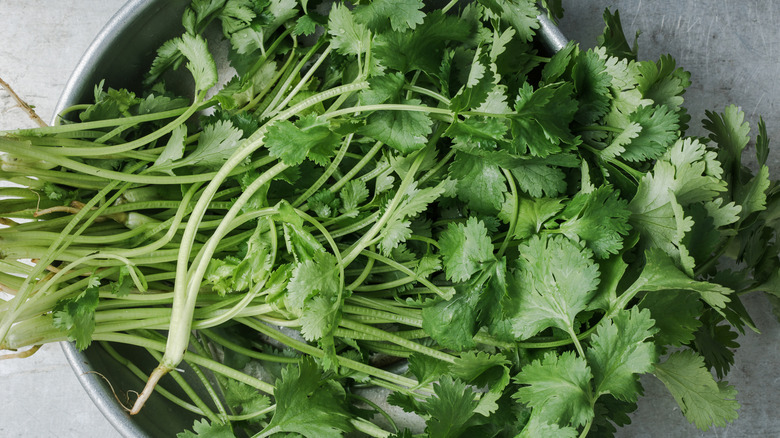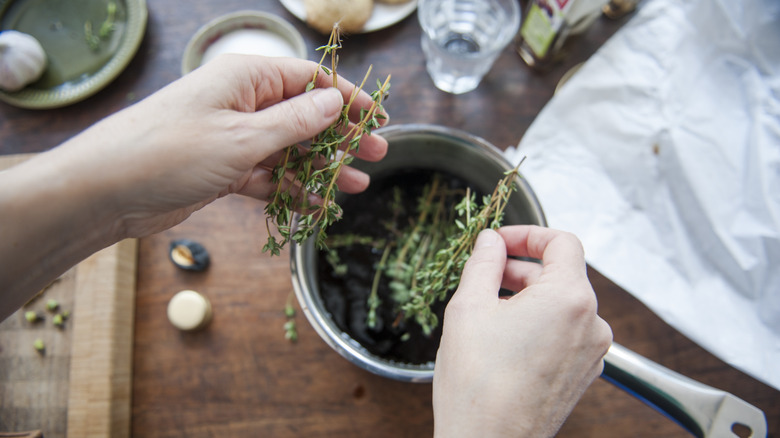The Simple Rule You Should Always Follow When Cooking With Fresh Herbs
While dried herbs are loved for having a strong and punchy flavor, their fresh counterparts are packed with powerful oils that can add layers of delicate complexity to a recipe. Moreover, a handful of fresh herbs can impart an exquisite fragrance to your dish while also enriching it with bright vibrancy — think chopped cilantro or culantro on top of hot curries, sweet basil garnished on pizzas, and sprigs of earthy parsley in soups and stews. But there is one important rule that you need to follow when using fresh herbs, and that's knowing exactly when to add them to your cooking.
Dried herbs are typically added at the start of cooking so that there is enough time for their flavor to fully bloom. However, that's not the case with fresh ones. There are two types of fresh herbs: soft and woody. Soft herbs like parsley, mint, and basil have tender, edible stems and are packed with moisture, which makes them prone to bruising and oxidizing quickly. These are incredibly delicate herbs with subtle flavors that will disappear when exposed to heat over long cook times, leaving a slight bitterness in their wake.
As a result, fresh herbs should always be added at the very end of the cooking process — either one or two minutes before you take a dish off the heat or right before you serve it. This will ensure that they aren't exposed to excess heat and you get the most out of their nuanced flavors.
Woody fresh herbs should be added earlier
Fresh woody herbs like rosemary, thyme, and sage are more robust and resilient, have tougher and thicker stems, and don't bruise or oxidize as easily. These require time to soften and tenderize, which is why they need to be cooked for longer. Moreover, the extended cooking time also allows their flavors to develop further.
Unlike their soft counterparts, woody fresh herbs are best added during the initial stages of cooking. You could saute them right with your aromatics or throw them in a sauce as it bubbles away on the stove. Just make sure to give them up to 20 minutes or so to cook through and really infuse their flavors into the dish.
Needless to say, when you add fresh herbs makes all the difference. However, one instance where this rule doesn't have as significant an impact is cold dishes that don't involve any heat — like salsa, dips, and an herby three bean salad, for instance. You could mix most herbs at any given point in such recipes without affecting their flavor.
That being said, some soft fresh herbs like cilantro (which isn't the same as coriander) lose their vibrant hue and their flavors become a tad dull over time, so you may not want to add them in advance. Consider sprinkling them right before you plan to serve and eat the meal for maximum flavor.


